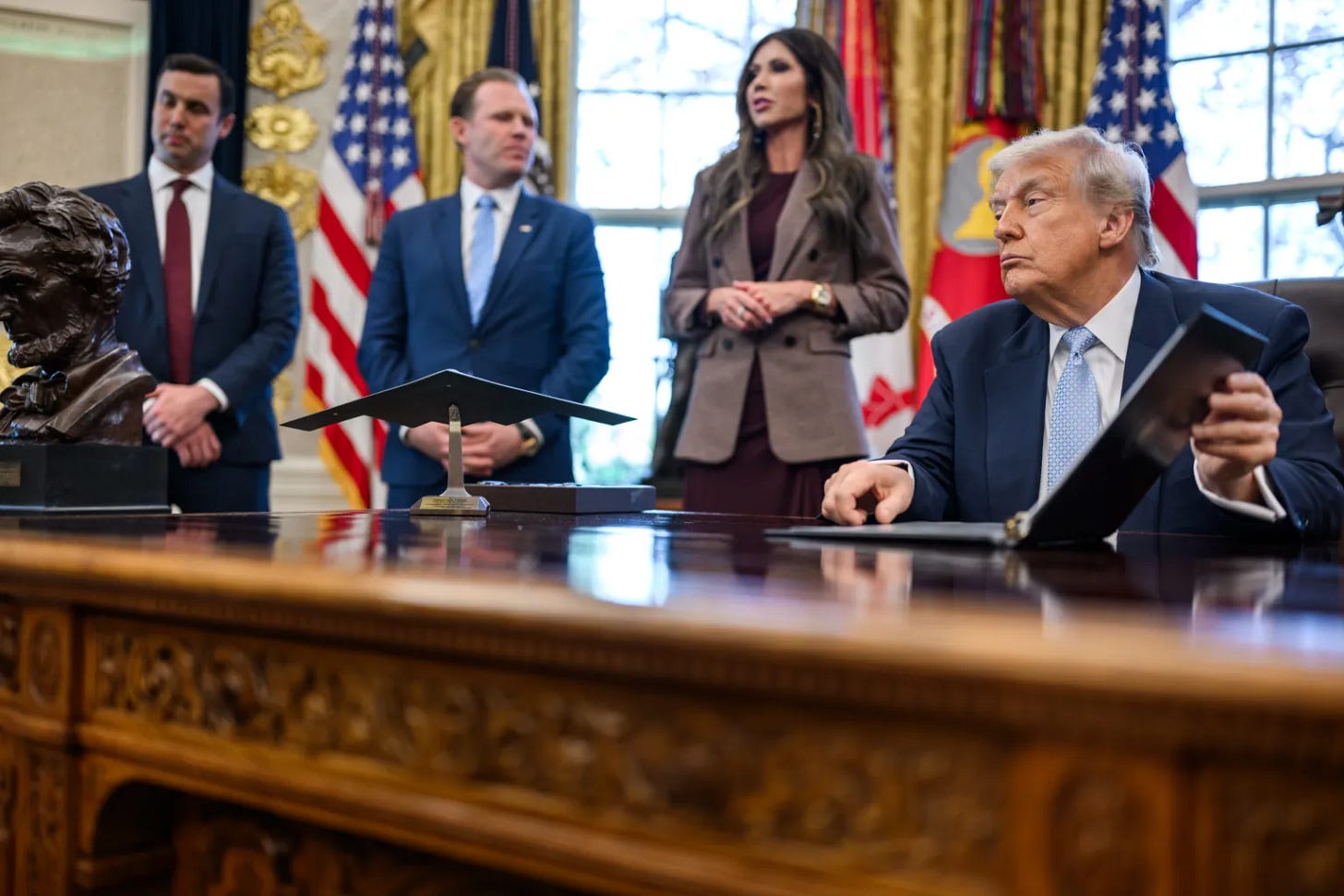US President Donald Trump has issued an executive order that tasks his national security team to determine if Muslim Brotherhood branches operating in Egypt, Jordan, and Lebanon should receive foreign terrorist organization status. The White House received this announcement on Monday as part of its Middle East campaign to combat groups supporting Hamas and endangering US interests. The order requires a 30-day White House report and will trigger sanctions, travel restrictions, and criminal penalties for supporting designated terrorist organizations within 45 days.
What the Executive Order Does
According to Al Jazeera and the BBC, the directive instructs the secretaries of state and treasury, in coordination with US intelligence, to assess whether specific Brotherhood chapters should be labelled both “foreign terrorist organisations” and “specially designated global terrorists.” The White House statement said the move targets a “transnational network” it accuses of aiding terrorism and destabilising US allies, particularly through alleged links to the Palestinian group Hamas and, in Lebanon, to Hezbollah.
If the review results in a formal designation, US law would make it illegal to knowingly provide funds, services, or other material support to the blacklisted entities, while their assets subject to US jurisdiction could be frozen. Current and former members of the designated branches could also face visa bans or deportation, mirroring restrictions already applied to other groups on the State Department’s foreign terrorist organisation list.
White House Justification and Supporters
The White House presented this order as part of its strategy to fight against what it calls an Islamist infrastructure that endangers both regional security and American alliances. Right-wing activists in the United States and Israel have been advocating for this designation since the early 2000s because they claim Brotherhood-affiliated organizations support Hamas and other armed groups through ideological and logistical assistance.
The designation supports US policy advocates who reference previous congressional bills known as “Muslim Brotherhood Terrorist Designation Acts,” which demonstrated alleged Brotherhood affiliate involvement in attacks and their support networks. The 2018 US congressional hearing established that Brotherhood affiliates maintain operations across 70 nations, while multiple organizations already face terrorist designation from the United States and its partner countries.
“President Trump is addressing the transnational network of the Muslim Brotherhood, which contributes to terrorism and destabilizing actions against U.S. interests and allies in the Middle East,” the White House said in a statement carried by the BBC.
Criticism, Legal Concerns, and Civil Liberties
Multiple sources from Al Jazeera warned that this action would create confusion between violent organizations and political organizations, which have maintained their commitment to peaceful electoral participation and social service activities. Multiple US national security personnel and diplomatic staff members have warned that designating the entire movement or its various branches would fail to satisfy FTO listing requirements and would create problems with countries that have Brotherhood-affiliated parties in their parliaments.
Multiple civil rights organizations in the United States fear that a broad designation could lead to the persecution of Muslim American organizations and charities through false accusations about their connections to the Brotherhood. Nihad Awad, who leads the Council on American‑Islamic Relations (CAIR), explained to Al Jazeera that American Muslim organizations remain strong. At the same time, he dismissed false claims about their Brotherhood ties, which anti-Muslim extremists have spread for years.
Regional and Political Context
The Muslim Brotherhood began in Egypt in 1928 and has since developed into multiple organizations that operate as religious groups and political parties throughout the Middle East. However, some chapters face prohibition while others participate in electoral processes. The Brotherhood exists as a terrorist organization according to Egypt, Saudi Arabia, and the United Arab Emirates. Still, Jordan maintains different policies toward its local chapters based on domestic political conditions.
The United States took this action while trying to shape the Gaza conflict between Israel and Hamas, and multiple governments in the region are conducting more aggressive operations against Islamist political organizations. The order received support from right-wing American and Israeli voters because it aligns with their security concerns about Islamist organizations.
Rami Khouri, a fellow at the American University of Beirut, told Al Jazeera that the foreign policy directive demonstrates poor foreign policy expertise but attracts support from right-wing voters in the United States and Israel.
Possible Next Steps
Under the timetable outlined in the order, US officials must deliver their report within 30 days, after which the administration has up to 45 days to finalise any designations and apply sanctions. If implemented, those measures would add the named Brotherhood branches to a State Department list that currently includes more than 70 foreign terrorist organisations worldwide, subjecting them to extensive financial and travel restrictions.
Legal challenges from affected groups or individuals remain possible, as seen in previous cases where entities contested their terrorist labels in US courts. Diplomats and analysts say governments in the Middle East, particularly those where Brotherhood‑linked parties retain social or political influence, will be watching closely to gauge how far Washington goes and how the designations, if imposed, reshape an already polarised regional landscape.



